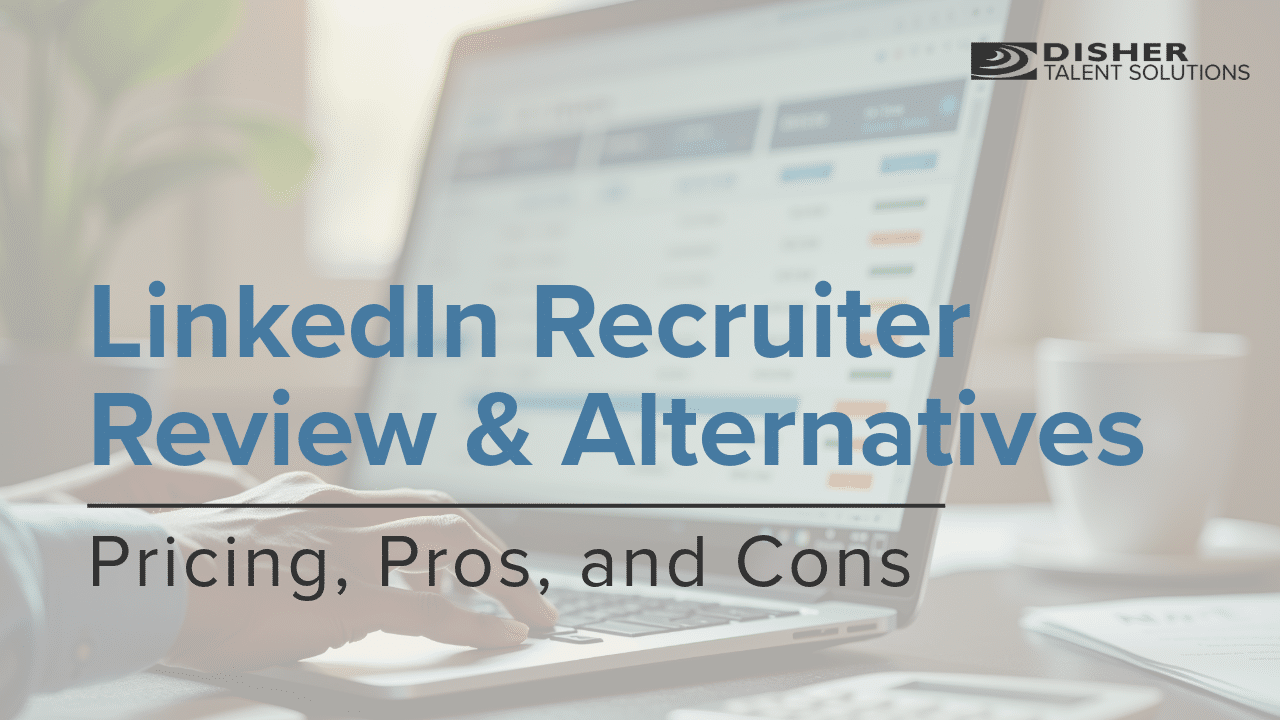
When businesses start growing, one of the first and most pressing challenges they face is hiring the right people. Most leaders naturally lean into their network to find talent. And why not? It feels safe. It feels fast. It feels like the “smart” way to go.
On the surface, it feels safe. You trust your employees, friends, or business contacts, so if they vouch for someone, that candidate must be solid, right? Plus, it’s quick and doesn’t cost you thousands in recruiter fees or job board ads.
But here’s the truth: depending too heavily on referrals to fill key roles can actually slow down growth, create blind spots, and cause major headaches down the road.
In this article, we’ll address 5 risks of referral-only hiring:
- Limited Reach and Smaller Talent Pool
- Referrals Don’t Guarantee Cultural Fit
- You Risk Falling into “Group Think”
- Referrals Alone Can’t Keep Up with Growth
- It Can Impact Employer Brand
Are You Limiting Your Talent Pool by Relying Only on Referrals?
The number one problem with relying only on referrals is the simple math: your hiring pool is limited to who your existing employees, friends, vendors, or professional partners happen to know.
Think about it like fishing. If you only cast your net in the same small pond, you’ll keep catching the same fish. That pond might be fine for a while, but what happens when you need a rare skill set, or when no one in your network knows someone ready for the role?
By narrowing your candidate list to “who my circle knows,” you can unknowingly miss out on exceptional talent that exists in the broader market. And in today’s climate, where top performers have countless options, you simply can’t afford to limit yourself this way.
Why Referrals Don’t Always Ensure Cultural Fit
It’s tempting to think that a recommendation from a trusted colleague or employee is a kind of “stamp of approval.” If they worked with this person before, surely that means your company will mesh with them too.
But culture is specific. Just because someone thrived in Company A doesn’t mean they’ll thrive in your environment. Maybe your team operates at a different speed. Maybe your management style doesn’t match what they’re used to. Maybe they like structure, and you’re still a scrappy, build-it-as-you-go startup.
A referral can tell you that someone is capable, but it doesn’t automatically mean they’re the right cultural match for your unique company. Blindly trusting referrals without vetting can create mismatches that ripple through the team and cause more harm than good.
The Risk of Groupthink with Referral-Based Hiring
Here’s another hidden danger: when you rely heavily on referrals, you often end up hiring people who are very similar to the people already on your team.
It’s human nature. We usually refer people we like, who share our viewpoints, personalities, or even career backgrounds. Over time, that creates a team that thinks the same way, works the same way, and sees the world through the same lens.
On the surface, that doesn’t sound so bad—it might even feel like you’d have fewer conflicts. But in reality, businesses thrive on diversity of thought. Innovation, creativity, and problem-solving come when different perspectives collide in productive ways. By narrowing your talent pool to referrals, you risk building a team that lacks the variety of experiences needed to grow and adapt in a fast-changing marketplace.
How Referral-Only Hiring Slows Down Business Growth
Referrals can help fill roles, but if your business is aiming to scale quickly, referrals alone cannot support that pace.
Think about what happens when you’re trying to grow from a team of 15 to a team of 50. Even if every employee makes a great referral, that doesn’t guarantee the positions you need will be covered. Chances are, some of those roles require expertise no one in your circle has access to.
Relying only on referrals keeps your hiring reactive instead of proactive. You end up waiting for the “perfect” person to come recommended, rather than taking control of your hiring pipeline. And the longer it takes to fill key roles, the harder it becomes to sustain growth momentum.
The Impact of Referral Hiring on Employer Brand
Many leaders don’t realize this, but how you find and hire people shapes the perception of your company in the talent marketplace.
Referrals might suggest an “exclusive club,” which works in certain instances, but it can also send the wrong message: that your company isn’t welcoming new or diverse voices, and that you’re not actively committed to finding the best talent available.
This can make it harder to attract candidates outside your circle later, creating a self-reinforcing loop: fewer outside applications, more reliance on referrals, and a shrinking brand presence in the wider talent market.
So, What’s the Solution?
The point here isn’t to throw referrals out the window. They can be incredibly valuable when used correctly. The key is not to rely on them as your only strategy.
- A healthier approach blends referrals with other proactive recruiting methods:
- Invest in employer branding so talent seeks you out, even if they have no mutual connection.
- Leverage multiple channels like LinkedIn, industry groups, and job boards to widen the talent pool.
- Treat referrals as one ingredient in the recipe, not the whole meal.
- Focus on structure and fit by having objective screening and interview processes that reduce bias.
By expanding the way you search, you’ll protect your business from the risks of overdependence, and you’ll give yourself the best chance of consistently hiring top performers who bring both skills and perspective.
The Bottom Line
Referrals aren’t bad. In fact, they’re often a great starting point and can lead to excellent hires—especially when combined with other strategies. The problem is not in using referrals; the problem is in depending on them.
When you rely on referrals to fill key roles, you shrink your options, increase your risks, and limit the diversity and growth potential of your business. Smart companies recognize that referrals should be one tool in a larger hiring strategy, not the entire playbook.
The best teams aren’t built by accident—they’re built by intention. Referrals absolutely have their place, but only as part of a bigger, smarter system.




